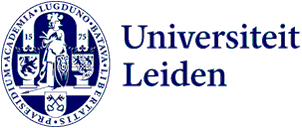Lecture
Liveable planet lunch meeting - Digging for a Liveable Planet?
- Date
- Thursday 27 January 2022
- Time
- Serie
- Liveable communities – Liveable Planet
- Address
- Online in MS Teams
You are invited to join us for the ninth lunch meeting of the Liveable Planet programme. This lunch meeting will be online (see Teams link at the bottom of this page).
Programme
12:00
Short introduction | all webcams on
12:05
Prof. Dr. Wil Roebroeks will take the stage for his presentation, see details below. The presentation will be followed by an opportunity to discuss the topic and ask questions
Digging for a Liveable Planet?
Studying timescales of thousands to millions of years, archaeology has the potential to provide a very long-term perspective on our development as a planet-transforming species, which started already long before agriculture became a dominant way of living.
How to obtain data
In this lecture, I will focus on a recently published case study of early humans (Neanderthals) altering ecosystems during the Last Interglacial, about 125,000 years ago. I will briefly show the contexts within which archaeologists studying the very deep past (the Palaeolithic) obtain their primary field data; this occurs often, as in the case study of the lignite quarry site Neumark-Nord (Germany), during landscape destruction activities, recalling the debate of our previous lunch meeting, by Thomas Franssen.
A multidisciplinary field
As archaeologists have a very keen interest in the age and environmental background of the human activities they study, our field- and laboratory work is highly multidisciplinary and often yields high-resolution data that can help fine-tune existing ideas about past and future vegetation and climate. In this case, it entailed for example clarification of the chronological relation between global climatic developments as recorded in the deep sea record – our key database for millions of years of climate change – and terrestrial vegetation changes in the middle latitudes in Europe.
A not-so-untouched nature
The Neumark-Nord exposures and their wider setting also provided an ideal situation for identifying anthropogenic fire signals. Hunter-gatherer use of fire to modify their environment has been a long-neglected topic. Increasingly, however, studies demonstrate (sub-) recent foragers burning vegetation occurring worldwide, and influencing to varying degrees virtually all biomes.
Studying such practices in the deep past is very challenging and may not directly help create a more ‘Liveable Planet’. However, these studies inform about early human impact on natural landscapes, and in this case specifically about the Last Interglacial as a baseline reference period. They affect the way we see past ecosystems as presumably untouched by early humans and thus problematise the concept of an ‘untouched nature’.
Leo Lucassen & Marja Spierenburg will both reflect on the lecture and the possible contributions of historical and social science research in contributing to a Liveable Planet. Leo Lucassen is Professor of Global Labour and Migration History at Leiden University and director of the International Institute of Social History (IISH), Amsterdam. Marja Spierenburg is Professor in the Anthropology of Sustainability and Livelihoods at Leiden and a core member of the Liveable Planet team. After these reflections we open up the discussion to the audience.
Liveable communities – Liveable Planet
The Liveable Planet programme is one of the eight interdisciplinary programmes that were launched at Leiden University in 2020
Leiden’s Liveable Planet programme aims to combine scientific, policy, socio-cultural and historical/archaeological research at Leiden University into coherent research with which we can tackle the major challenges of a transition to a habitable planet with ecological sustainability. The programme will serve as a hub for the wide range of relevant research carried out within Leiden University and welcomes interaction with colleagues interested in contributing to the initiative within as well as outside of Leiden University.

